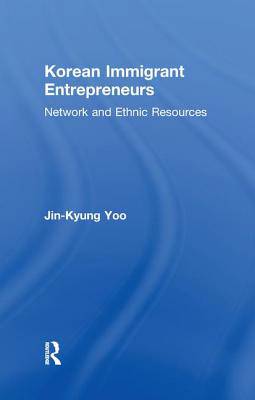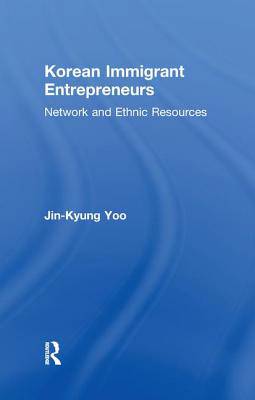
- Afhalen na 1 uur in een winkel met voorraad
- Gratis thuislevering in België vanaf € 30
- Ruim aanbod met 7 miljoen producten
- Afhalen na 1 uur in een winkel met voorraad
- Gratis thuislevering in België vanaf € 30
- Ruim aanbod met 7 miljoen producten
Zoeken
€ 97,95
+ 195 punten
Uitvoering
Omschrijving
This book examines the advantages and disadvantages of Korean immigrant entrepreneurs in the mainstream labor market. Immigrants to the U.S. have historically pursued entrepreneurship as a means of achieving economic affluence. Among immigrants since the 1965 Immigration Amendment Act, Koreans have one of the highest rates of entrepreneurship. This study investigates various structural elements, including enclave and non-enclave economies, to uncover interconnections with personal advantages such as capacities for resource mobilization through networks and human capital utilized to establish businesses. The results show that networks are the most prominent resources that Korean immigrants use for business establishment. However, networks are divided into two elements: family and social. The examination of both types of networks shows how they operate differently and generate different intrinsic to business establishment. Although previous studies have recognized the economic advantages of immigrants with higher educational backgrounds, this study further demonstrates how higher human capital is utilized through network establishment to benefit business establishment. Also, counter to traditional belief, it is found that ethnic resources are not especially crucial resources for starting a business, but are useful after businesses are established.
Specificaties
Betrokkenen
- Auteur(s):
- Uitgeverij:
Inhoud
- Aantal bladzijden:
- 220
- Taal:
- Engels
- Reeks:
Eigenschappen
- Productcode (EAN):
- 9781138992948
- Verschijningsdatum:
- 26/08/2016
- Uitvoering:
- Paperback
- Formaat:
- Trade paperback (VS)
- Afmetingen:
- 140 mm x 216 mm
- Gewicht:
- 263 g

Alleen bij Standaard Boekhandel
+ 195 punten op je klantenkaart van Standaard Boekhandel
Beoordelingen
We publiceren alleen reviews die voldoen aan de voorwaarden voor reviews. Bekijk onze voorwaarden voor reviews.











